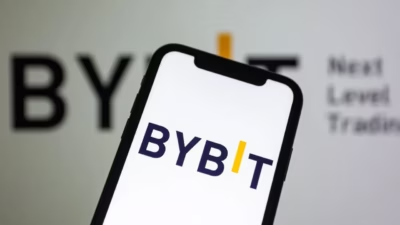GRVT, now BMA-approved, says CeFi and DeFi can unite, with regulation helping DEXs improve universal standards.
Cryptocurrency exchange that functions as both The Bermuda Monetary Authority (BMA) has granted regulatory sanction to GRVT, the most recent industry firm to do so.
GRVT informed Cointelegraph on December 6 that it has been granted a Class Modified (M) Digital Asset Business License from the BMA, which enables the exchange to function as a regulated decentralized exchange (DEX).
GRVT co-founder and CEO Hong Yea stated that the company intends to extend its operations beyond a sandbox environment by securing the Class Full (F) license by mid-2025, following the receipt of the initial Class M license under the Bermuda Digital Asset Business Act (DABA).

By obtaining the BMA’s license, GRVT has joined a list of over 30 crypto companies that have been licensed by the regulator.
This list includes prominent industry names such as Coinbase, Bittrex, and HashKey.
Pioneer In Regulated DEXs
By acquiring a license in Bermuda, GRVT becomes one of the first DEX operators, enabling it to integrate centralized finance (CeFi) and decentralized finance (DeFi).
The company stated that the license was acquired by GRVT after a 15-month period, which coincided with the platform’s deployment of internal mainnet testing to institutions on December 4.

“Our mainnet will be officially launched to all users in approximately two weeks.” Yea informed Cointelegraph that our trading volume will be accessible through significant external data providers.
GRVT, which was established in November 2022, is presently conducting a testnet trial with 55 institutional partners and clients and 17 market makers.
The company has a contractual obligation to generate a monthly trading volume of $4.2 billion. Yea also stated that over 20,000 retail users have completed Know Your Customer assessments.
CeFi, DeFi Do Not Necessitate Division
Yea stated that the CeFi and DeFi ecosystems do not require division, as regulation is well-positioned to assist DEXs in the enhancement of universal standards and other practices.
The CEO stated, “Our objective is to unite cryptocurrency and mainstream finance, establishing a system in which all forms of value coexist in a single, integrated ecosystem and assets can move freely.”
“Decentralization distributes control away from central authorities, promoting transparency, security, and user empowerment. Regulation establishes standards to protect users, ensure market integrity and promote fair practices.”
Yea continued to assert that regulation and decentralization are “not mutually exclusive,” as these concepts have the potential to be reconciled within the digital ecosystem.
“In the current state of DeFi, institutions continue to perceive it as unregulated, unsafe, and untested.” He also stated that the primary reason institutions avoid DeFi is its unregulated status.
CeDeFi Concept Is Gaining Momentum
GRVT is not the first company to acknowledge the potential mutual advantages of CeFi and DeFi.
In recent years, the concept of CeDeFi has been expanding, as more players have begun to adopt it. This concept unites the fundamental principles of DeFi and CeFi.
SafePal, a self-custodial crypto wallet company, announced in November 2024 that its Telegram Mini App incorporates CeDeFi principles. The app provides a regulated crypto exchange and a digital crypto Visa card.
“Despite systemic failures such as the 2008 financial crisis, TradFi has maintained its mainstream status through centuries of regulatory evolution and frameworks.”
In contrast, DeFi is beset by a lack of regulatory standards, which has resulted in its stagnation at the margins, despite our ambitious objectives,” Yea stated.



